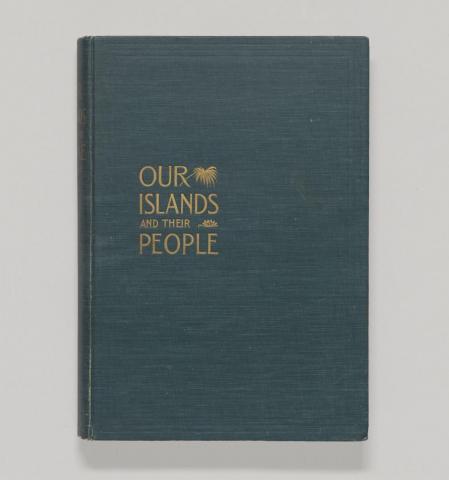
Our Islands and Their People as Seen with the Camera and Pencil
This popular two-volume book sold around four hundred thousand copies. Its aim was to map out and assert the new empire and acquaint U.S. readers with the country’s “new possessions.” Puerto Rico, Hawai‘i, the Philippines, and Guam. The publication also addresses the Samoa Islands, of which the United States annexed those lying east of longitude 171 degrees in 1899. By pairing landscape and portrait photography with data and U.S. military observations, Our Islands portrayed colonial subjects as “others” in need of political instruction from the United States.
Audio Transcription: By 1898, the job of professional photographer already exists, and there are photographers who work for government institutions. But there are also photographers that were hired as photo journalists by publishing houses. There is an extraordinary description of the moment when the United States flag is hoisted for the first time in Puerto Rico. It narrates how you could hear the 'click, click, click' of the camera's shutter release. Many of these photographs convey the aims of the agency that commissioned them. They will showcase the state of backwardness of the society-- the bridges, the streets, if they are paved or not, the children on the streets, the nakedness. And the accompanying caption will convey that perspective and that point of view, highlighting the lack of schools, highlighting the immorality of what they call 'Spanish society.' There is here implicitly a new era that starts with a civilizing mission of a society that is portrayed as poverty-stricken and capitalistic, towards a society that is prosperous and more Americanized. So in that sense, photography is not innocent. It has an intention.
– Mi nombre es Libia González, historiadora, profesora catedrática de la Universidad de Puerto Rico, Recinto de Río Piedras.